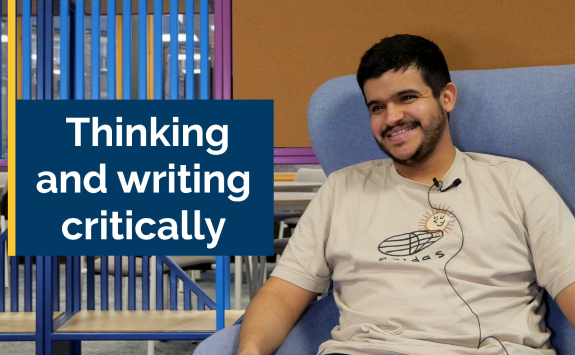Thinking and writing critically
Students are expected to think and write ‘critically’. But what does this mean, and how can you do it?
When you study any topic, you will find people who claim to understand it. Usually, these people will be published scholars whose ideas you read in articles and books. However, they may also be people you have discussions with in real life, such as your tutors and other students in your group.
The key to thinking critically is not automatically accepting things you read or hear. Instead, you should try to independently assess how reliable they are, considering evidence, logic, and alternative perspectives. Only then will you be able to make informed decisions about what to do with it.
Building your answer, not finding it
Often, especially in Arts and Humanities disciplines, questions do not have objectively ‘correct’ answers. This means you may not be able to find the ‘right’ answers to questions, no matter how hard you look.
Instead, evidence can often be interpreted in different ways to produce a range of possible answers. Sometimes this can feel disorientating, like you don’t have stable ground to stand on.
However, just because the evidence can be interpreted differently does not mean that all answers to questions are equally valid. Some interpretations of the evidence may be more convincing than others.
You are expected to use your own judgment to interpret evidence and build your own answers to questions. This is often called taking a ‘position’ or a ‘stance’.
In other disciplines, such as the Sciences and Mathematics, there may more often be objectively correct and incorrect answers to some questions. However, students in these disciplines are still expected to think critically, using evidence and logic to assess the reliability of what they read.
For example, this may mean scrutinising the methods that have been used to gather data, or the ways data has been interpreted. It might also mean considering how a piece of research relates to other investigations in this area.
And even in more scientific and mathematical disciplines, information may only be correct at that time, because knowledge continues to evolve. This means students should always be prepared to revise their understanding as scholarship develops.
Investing in your skills
Developing the skills and the confidence to think more critically is not easy - it takes time and sustained effort.
However, developing your ability to think critically and independently equips you much better - not just for your studies, but for your future employment, and indeed for your wider life.

